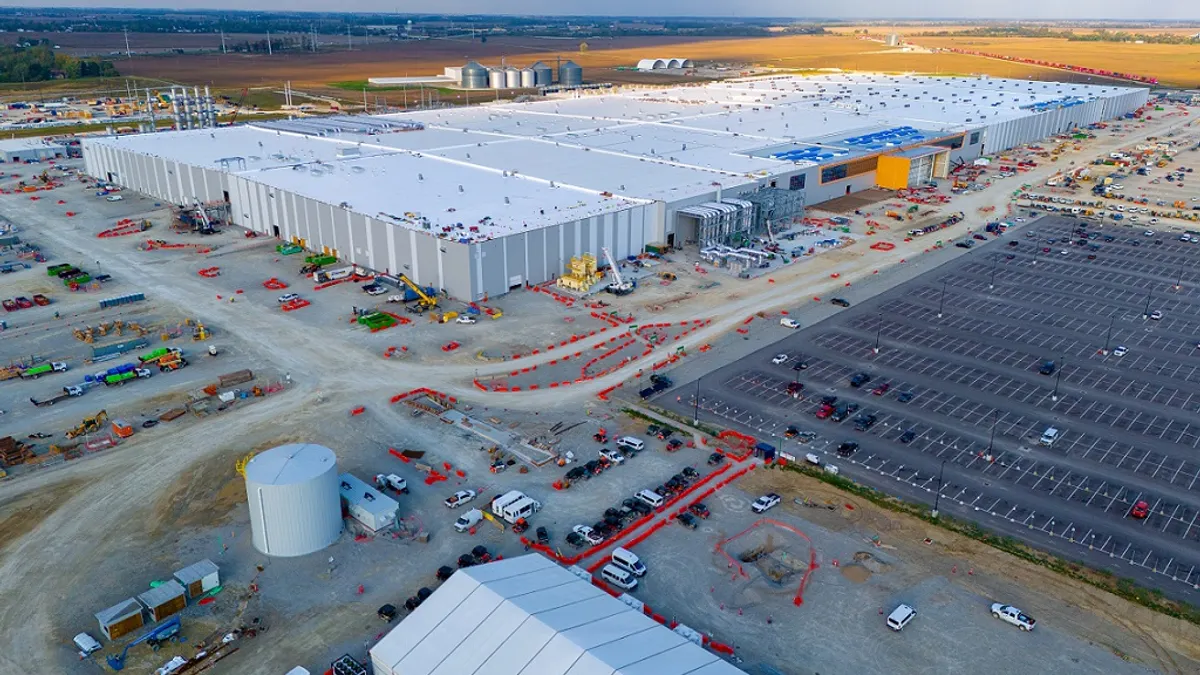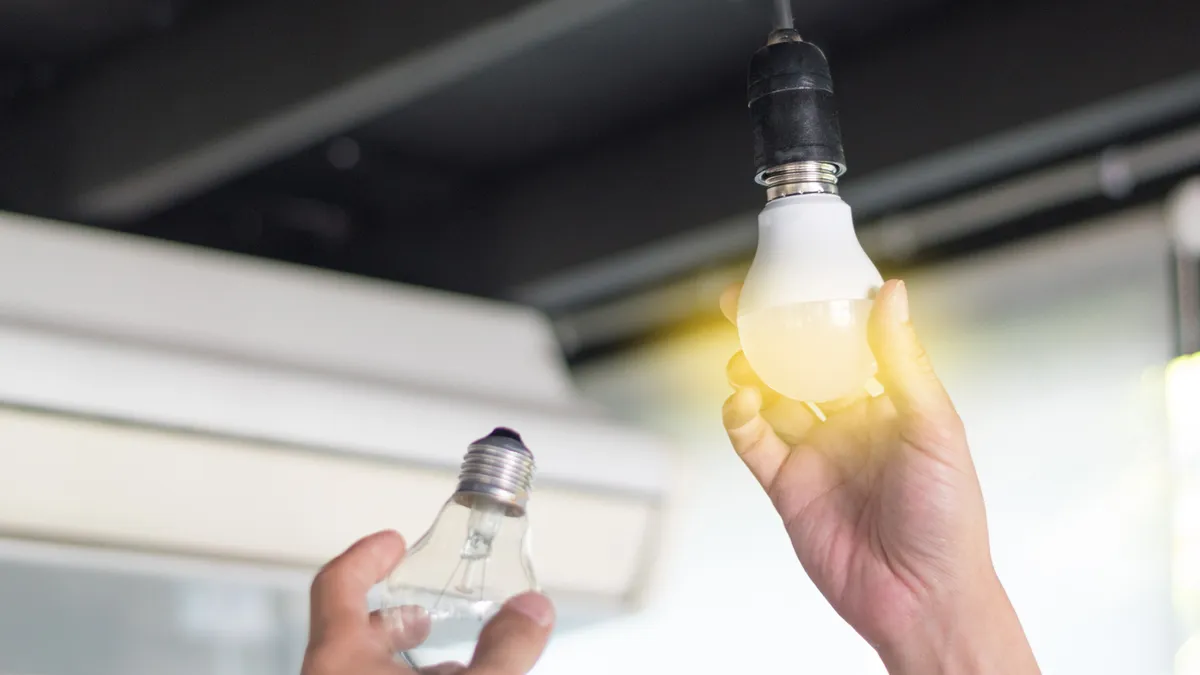American Airlines’ greenhouse gas emissions rose 6% in 2023, compared to 2022 as global air travel neared pre-pandemic levels, according to its annual ESG report released last week.
Though the company’s scope 2 emissions have continued to trend down, its scope 1 and scope 3 emissions have increased, with its scope 1 emissions still below 2019 levels.
The airline said it used more sustainable aviation fuel than ever before and expanded partnerships for zero emissions aircraft and other climate solutions last year, but CEO Robert Isom called the company’s “ability to achieve net-zero” its biggest sustainability challenge.
The world’s third-largest publicly traded airline by revenue reported July 2 it emitted 51,970,000 metric tons of carbon dioxide equivalent in 2023, up from 48,602,000 in 2022.
Given the uptick in air travel, American Airlines is not the first to report a 2023 carbon footprint spike. American’s competitor, Delta, reported a 23% year-over-year increase in greenhouse gas emissions in 2023, according to its ESG report released in May.
“It’s a risk for me to come out and say that American’s ability to achieve our 2030, 2035 and 2050 climate goals is in jeopardy,” Isom said in the report. “But in my mind, the bigger risk is failing to sound the alarm that there’s an urgent need for more and faster action across the public and private sectors. American is doing its part, but we can’t do it on our own.”
American Airlines’ direct emissions accounted for 72% of the airline’s total emissions for the year, and increased 8% in 2023, compared to 2022. American Airlines also had its lowest number of canceled flights last year since 2013, according to Isom.
The airline’s CEO said it will take the collaborative efforts of global government, industry and academia to advance aviation’s decarbonization. However, while he said it has been recognized that the sector will be one of the hardest to decarbonize, reaching industry-wide goals will require investments and actions that aren’t happening “at the pace or scale” needed.
“There’s no question we need to decarbonize aviation, and American’s goal to achieve net zero GHG emissions by 2050 is the right one,” Isom said. “But the reality is the action we can take within our own operations — or the scale of investment we can absorb in our low-margin business — will never be sufficient on its own.”
The company called transitioning to sustainable aviation fuel the “clearest near-term way to decarbonize aviation” and has a target of replacing 10% of its jet fuel with SAF by 2035. American Airlines reported using 2.7 million gallons of SAF last year — which it said was a 4% increase from 2022. However, Isom noted that the airline ultimately replaced less than 1% of its annual jet fuel consumption.
The airline said that to enhance the scale and availability of SAF to decarbonize the industry, there is a need for public policies that “drive necessary innovation, certainty and investments,” as well as the mobilization of additional financing sources and capital. Additionally, the airline said there needs to be continued SAF research and development and collaboration between airlines and SAF providers to ensure future aircraft are compatible.
“Transitioning to low-carbon aviation depends on innovations in airframe, engine and fuel production technologies, combined with effective policies and sufficient investment capital to drive those innovations and bring them to scale,” the ESG report noted. “It requires an all-hands-on-deck, all-of-the-above approach.”
The company has also made investments in hydrogen aircraft a part of its climate strategy, and paired the ESG report release with a conditional purchase of 100 hydrogen-electric engines from ZeroAvia. The purchase, also announced July 2, increases American Airlines’ investment in ZeroAvia, a company looking to retrofit regional passenger planes with hydrogen engines.
American Airlines first invested in ZeroAvia in 2022 and signed a memorandum of understanding the same year. The hydrogen-powered aircraft producer said its passenger planes leave low-temperature water vapor as its only emissions. ZeroAvia completed 13 test flights of a 19-seat hydrogen aircraft in 2023, according to American Airlines’ ESG report.
ZeroAvia is now flight testing a prototype for a 20-seat hydrogen-powered plane, with engines for a similar build of plane that American Airlines uses on some of its regional flights, according to the July 2 press release.
The carrier also recently completed the trial for a federal class-action lawsuit it is facing over its employee pension funds’ ESG activity. The lawsuit was filed by one of the airline’s pilots in the Northern District of Texas last June, before being certified as a class action challenge in May.
The trial concluded June 27, more than a year later, and the plaintiff’s lawyers argued in their closing that a 2021 vote BlackRock made for the airline’s pension plan at ExxonMobil lost the fund $15 million, Bloomberg Law reported. The company now awaits Judge Reed O’Connor’s decision in the case.


















